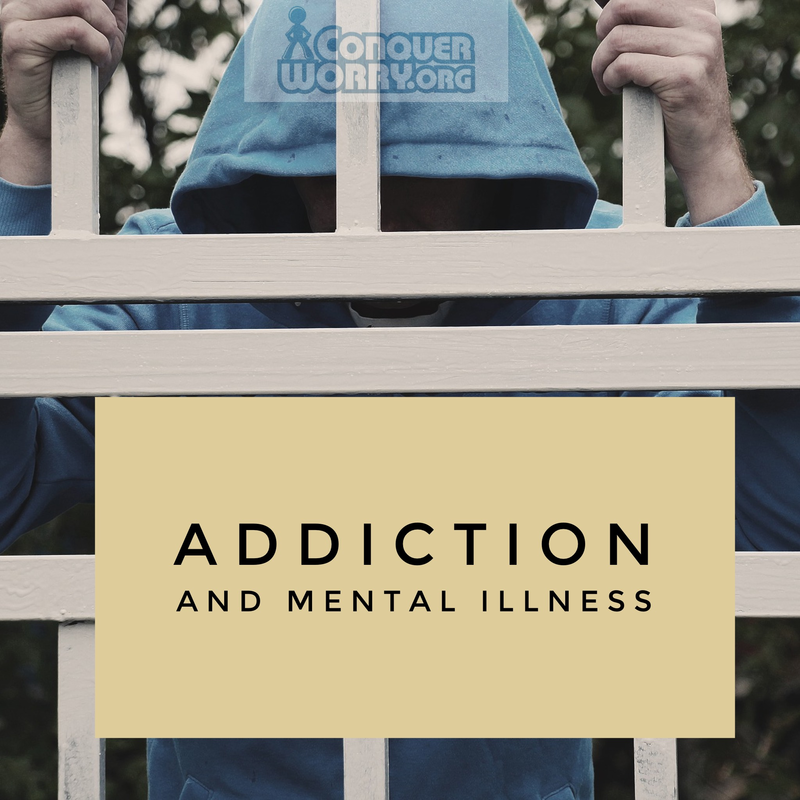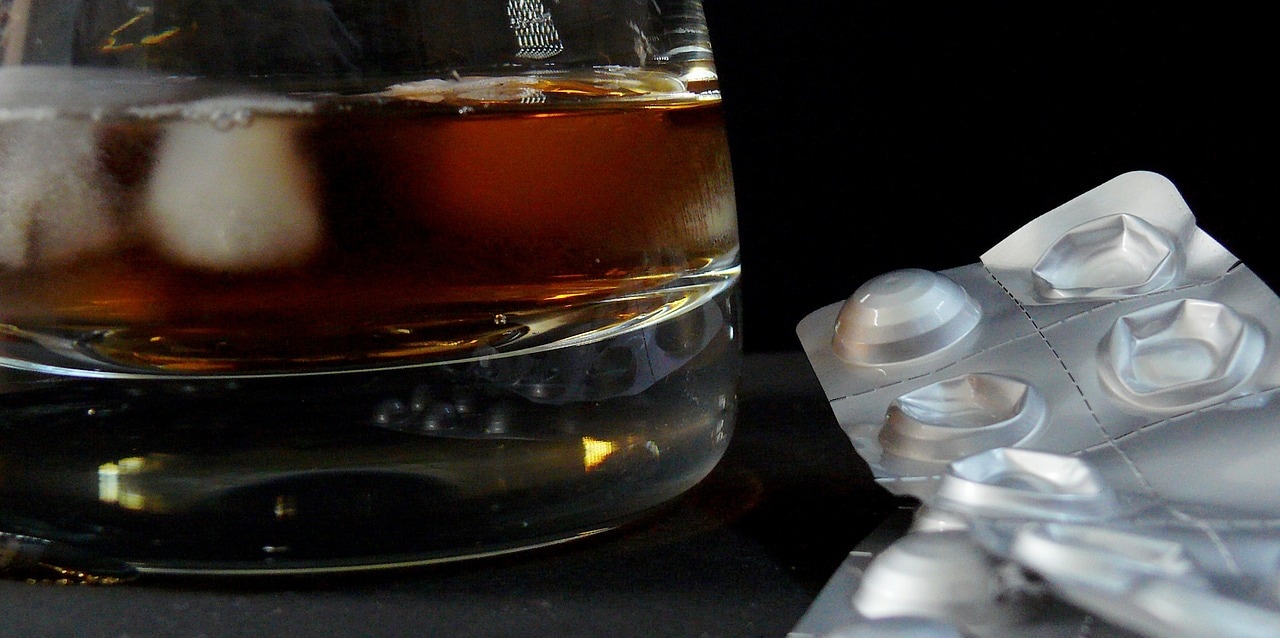|
Article by Matt Gonzales Edit and post design by Christy Zigweid Photo by lechenie-narkomanii via Pixabay made using @WordSwagApp Drug or alcohol addiction impacts lives. It can fracture a person’s relationships, affect his or her academic or job performance, and put the individual’s health at risk. Substance abuse can weaken a person’s immune system or cause seizures, stroke, or brain damage. Addiction can also lead to the development of mental illness, such as anxiety or depression. Mental diseases affect the way an individual thinks and his or her behavioral patterns. Some mental disorders, such as panic disorder, are rooted in anxiety. Other mental disorders, such as post-traumatic stress disorder, involve unwanted, intrusive thoughts. Nearly 44 million U.S. adults experience mental illness in a given year, according to the National Alliance on Mental Illness (NAMI). About 13.6 million adults in the United States live with a serious mental illness. According to NAMI: 18.1 percent of U.S. adults live with an anxiety disorder About 20 percent of Americans with an anxiety or mood disorder have a substance use disorder, according to the Anxiety and Depression Association of America. Conversely, about 20 percent of those with addiction have an anxiety or mood disorder. Mental disorders can lead to drug or alcohol addiction, as well. Men are more likely than women to develop a co-occurring disorder. People of lower socioeconomic status, military veterans, and individuals with general medical illnesses are also at risk for developing a co-occurring disorder. People with mental illness often use drugs or alcohol to self-medicate. However, substance abuse can worsen symptoms of mental illness and trigger new symptoms. Self-medication can also lead to addiction. A 2010 study published in the journal Current Drug Safety outlined the consequences of self-medication. Individuals who self-medicate may self-diagnose incorrectly, fail to seek medical help, or take a dangerous amount of the substance. People self-medicate using drugs or alcohol to numb physical or emotional pain. For example, someone with anxiety may discover that a few drinks and some marijuana take the edge off in social situations. But the more an individual uses these substances to manage stress, the less able he or she is to cope in healthy ways. Substance abuse is common among people with social anxiety disorder, a mental illness characterized by an extreme fear of being scrutinized or judged in social or performance situations. Drinking in social situations may reduce anxiety, but it can also result in alcohol abuse. PTSD and substance abuse also frequently occur together. People with PTSD often use drugs or alcohol to alleviate emotional pain. However, these substances have shown to worsen PTSD symptoms. Many mental health professionals treat PTSD and substance abuse together because symptoms of this mental illness can lead to relapse. Those with co-occurring disorders should seek treatment immediately. Rehab centers across the United States offer a continuum of care catered to each individual’s needs. People who have completed treatment and are in recovery go on to live healthy lives while maintaining successful careers. SourcesAnxiety and Depression Association of America. (2016, June). Social Anxiety Disorder. Retrieved from https://www.adaa.org/understanding-anxiety/social-anxiety-disorder Anxiety and Depression Association of America. (n.d.). Substance Use Disorders. Retrieved from https://www.adaa.org/understanding-anxiety/related-illnesses/substance-abuse Dayton, T. (2013, July 9). Why We ‘Self-Medicate’ Our Own Depression or Anxiety. Retrieved from http://www.huffingtonpost.com/dr-tian-dayton/self-medication_b_3236724.html National Alliance on Mental Illness. (n.d.). Dual Diagnosis. Retrieved from http://www.nami.org/Learn-More/Mental-Health-Conditions/Related-Conditions/Dual-Diagnosis National Alliance on Mental Illness. (n.d.). Drugs, Alcohol and Smoking. Retrieved from http://www.nami.org/Find-Support/Living-with-a-Mental-Health-Condition/Taking-Care-of-Your-Body/Drugs,-Alcohol-Smoking National Alliance on Mental Illness. (n.d.). Mental Health Facts In America. Retrieved from https://www.nami.org/getattachment/Learn-More/Mental-Health-By-the-Numbers/General-MH-Facts-4-12-15.pdf National Council on Alcoholism and Drug Dependence Inc. (2015, July 25). Alcoholism, Drug Dependence and Co-Occurring Disorders. Retrieved from https://www.ncadd.org/about-addiction/signs-and-symptoms/co-occurring-disorders Ruiz, M.E. (2010, October). Risks of self-medication practices. Retrieved from https://www.ncbi.nlm.nih.gov/pubmed/20615179 Substance Abuse and Mental Health Services Administration. (2016, March 8). Mental and Substance Use Disorders. Retrieved from http://www.samhsa.gov/disorders About the AuthorMatt Gonzales is a writer and researcher for DrugRehab.com. He boasts several years of experience writing for a daily publication, multiple weekly journals, a quarterly magazine and various online platforms. He has a bachelor’s degree in communication, with a Journalism concentration, from East Carolina University. Follow him on Twitter.
0 Comments
Leave a Reply. |
Build Your Action Based Stress Reduction System
Popular PodcastsOlympian Suzy Favor Hamilton - From Fame to Prostitution to Advocacy
Hall of Fame Basketball Star Chamique Holdsclaw on Mental Resilience Diana Nightingale on her husband Earl Nightingale's Principles for Mental Health Success JoAnn Buttaro on Date Rape & PTSD Survival Story: Its Never Too Late Gabe Howard on BiPolar Advocacy Phil Fulmer on Teen Suicide Prison, Bipolar and Mania with Andy Behrman Columbia Univeristy's Dr. Rynn on OCD Archives
March 2018
Categories
All
|




 RSS Feed
RSS Feed





